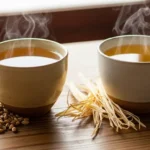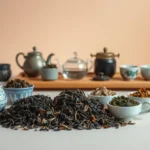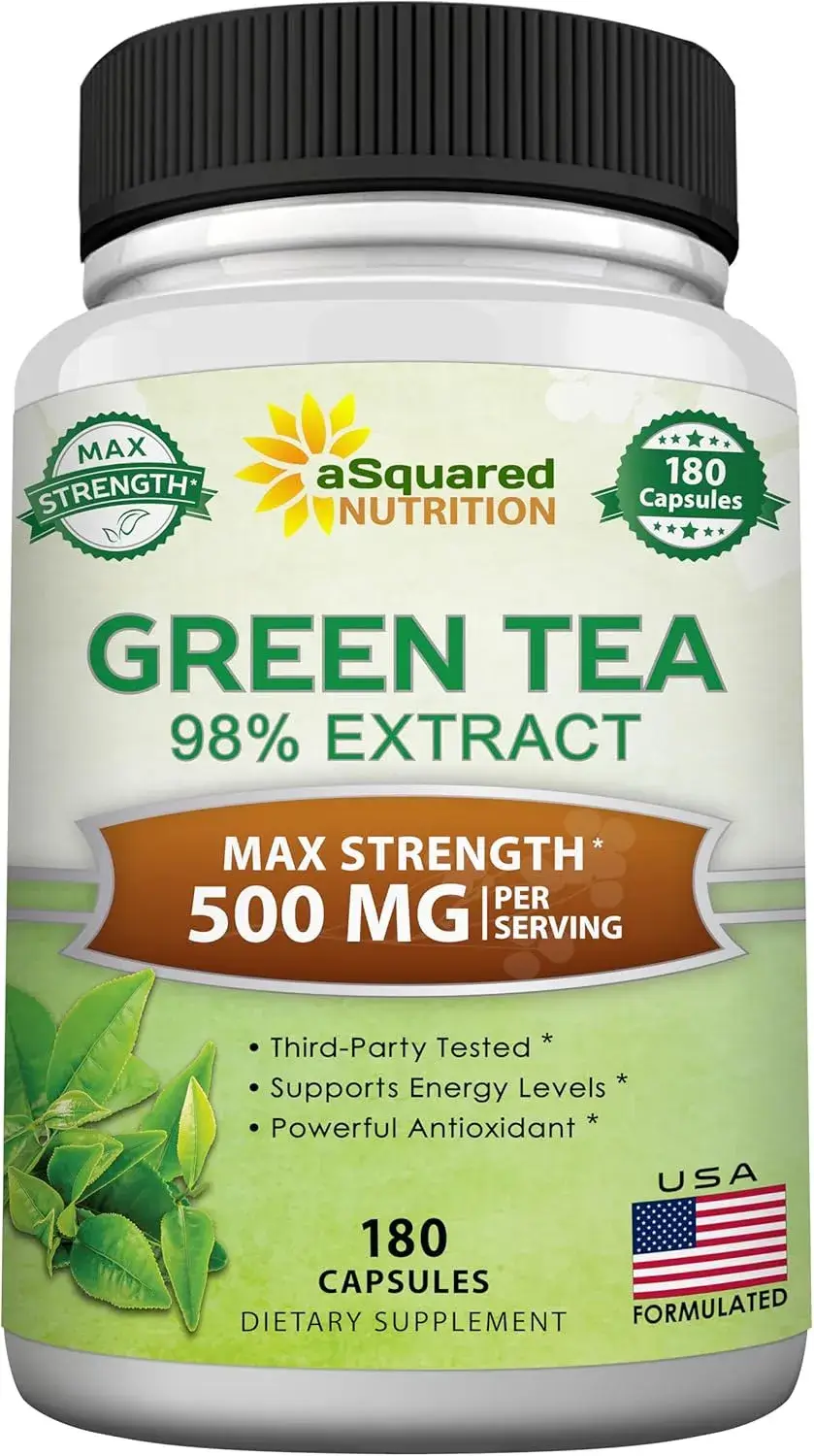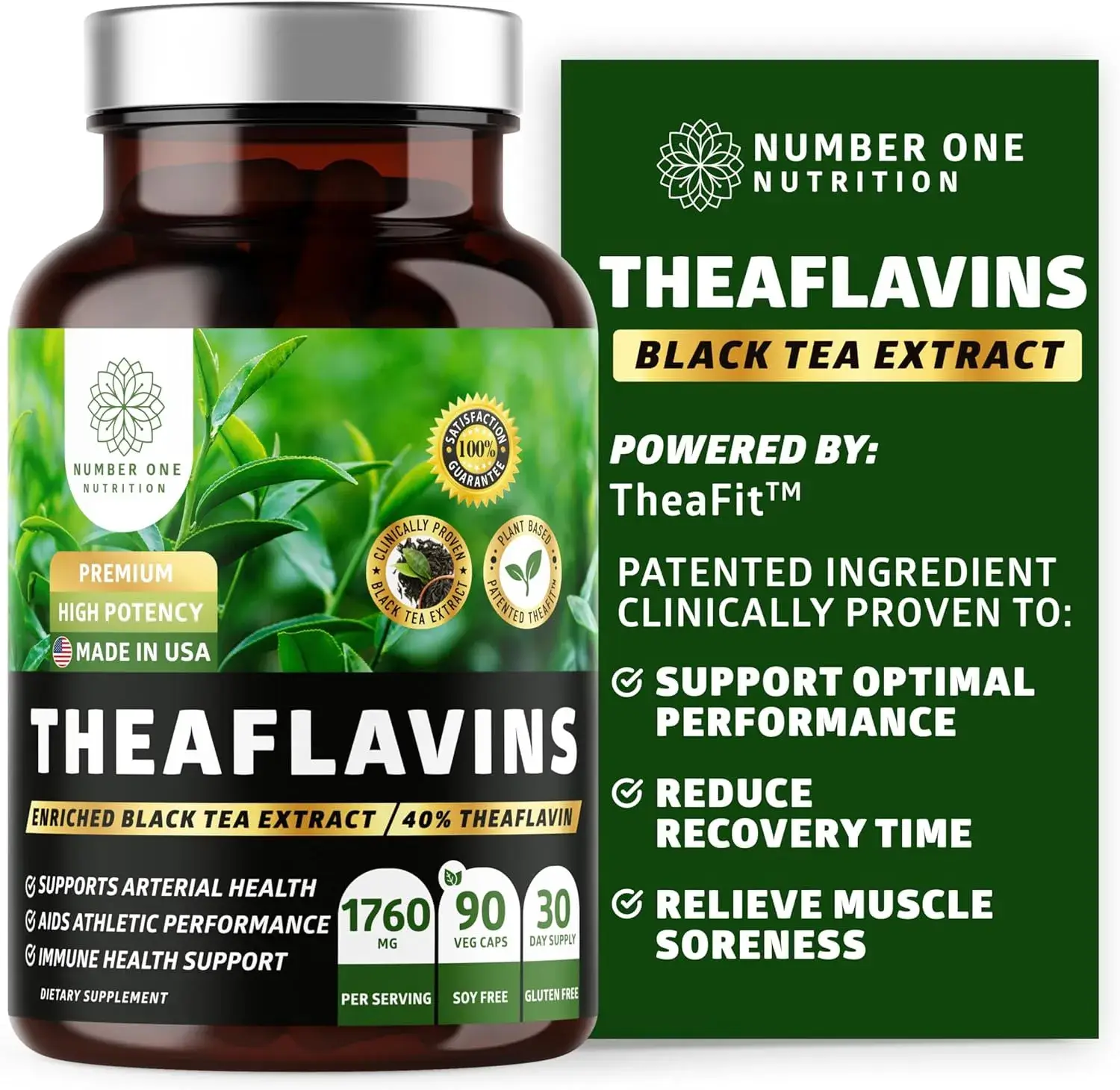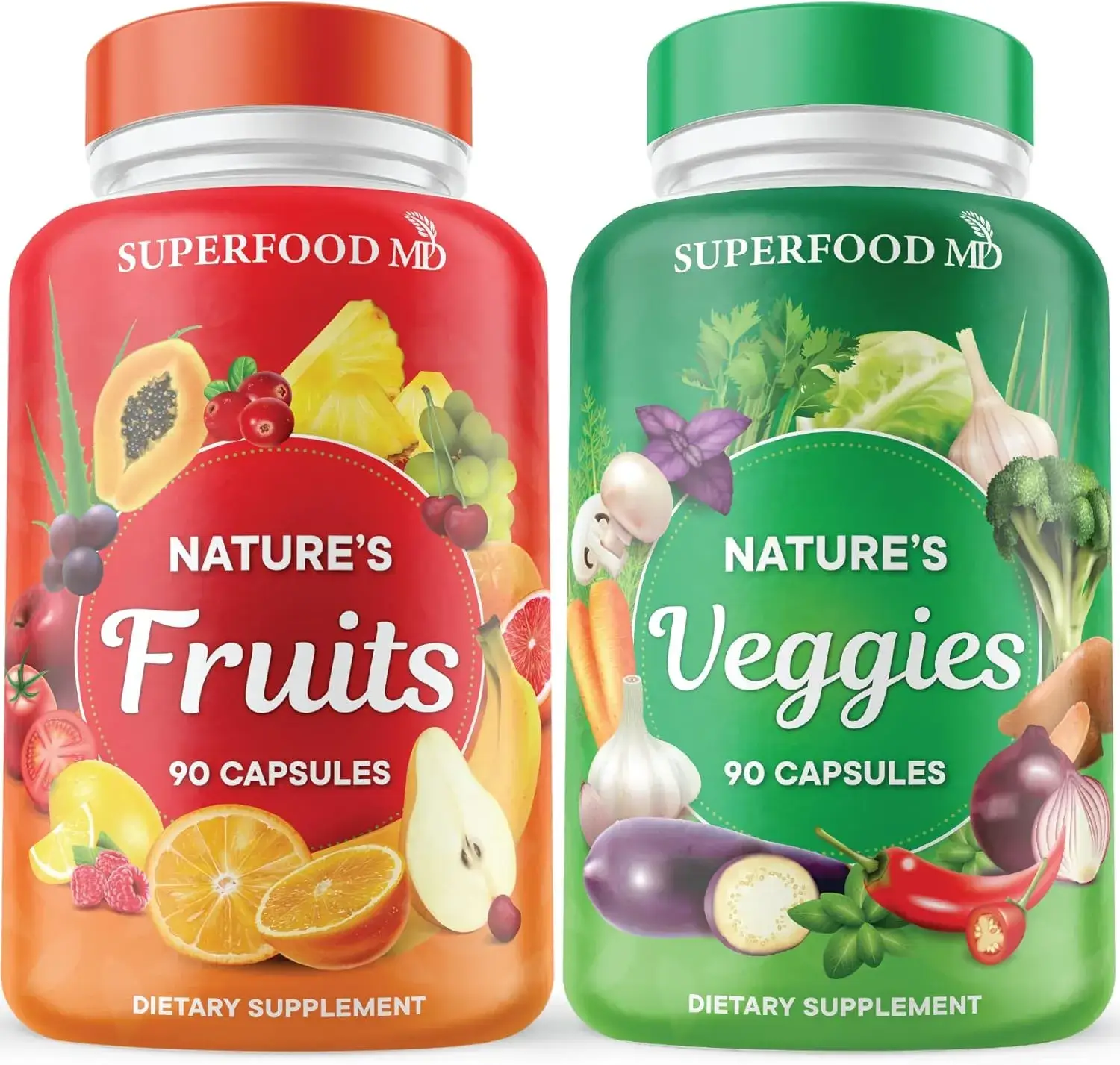Table of Contents
Lots of people are looking for ways to feel a little calmer these days, and tea often comes up. You might be wondering, is white tea good for anxiety? It’s a good question, as tea has been used for ages to help people relax. Let’s break down what we know about tea and how it might help when you’re feeling stressed out.
Key Takeaways
- White tea contains L-theanine, an amino acid that can promote relaxation without making you feel drowsy.
- While white tea has caffeine, it generally has less than green or black tea, which might be better if caffeine makes you anxious.
- Herbal teas like chamomile and lavender are often recommended for their calming effects, as they don’t contain caffeine.
- How you prepare your tea, like water temperature and steeping time, can affect its calming properties.
- Drinking tea can be a nice part of a bigger plan to manage anxiety, but it’s not a replacement for professional medical advice or treatment.
Understanding Tea’s Impact on Anxiety
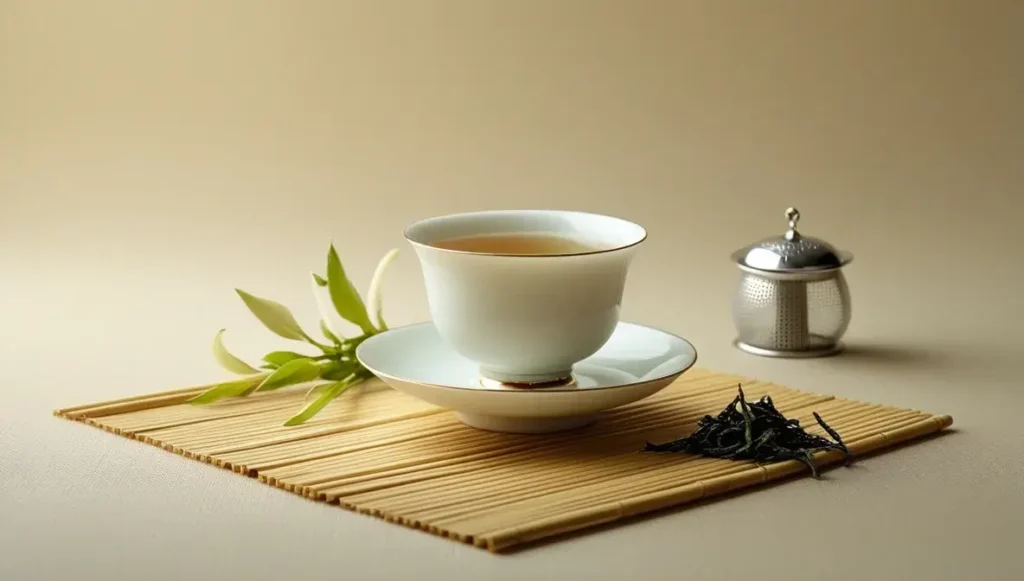
When we talk about tea and how it might help with feeling less anxious, it’s really about what’s inside the leaves and how it interacts with our bodies. It’s not just about sipping something warm, though that part is nice too. There are specific compounds in tea that scientists are looking at for their potential calming effects.
The Role of L-Theanine in Promoting Calm
One of the big players here is an amino acid called L-theanine. You find it in tea plants, especially in green and white teas. What’s cool about L-theanine is that it seems to help our brains produce more of the feel-good chemicals like serotonin and dopamine, and also a brain chemical called GABA, which is known for its anti-anxiety effects. It’s thought to help us feel more relaxed but still alert, which is a pretty neat trick. It’s like it helps quiet down the mental chatter without making you feel sleepy. This is a big reason why people turn to tea for stress relief.
How Caffeine Affects Anxiety Levels
Now, about caffeine. Most traditional teas like green, black, and white tea have some caffeine. Caffeine is a stimulant, and for some people, too much can actually make anxiety worse, leading to jitters or a racing heart. However, the amount of caffeine in teas like white tea is generally lower than in coffee. Plus, the L-theanine in tea seems to balance out some of the stimulating effects of caffeine, leading to that calm-alert feeling many people describe. It’s a bit of a balancing act, and knowing your own sensitivity to caffeine is key.
Herbal Components and Their Calming Effects
Beyond the tea plant itself (Camellia sinensis), there are also herbal teas, which are made from different plants altogether. Think chamomile, lavender, or peppermint. These don’t typically have caffeine and are often used specifically for their calming properties. For example, chamomile has a compound called apigenin that might bind to certain receptors in the brain, potentially helping to ease anxiety and promote sleep. These herbal options are popular for those looking for natural remedies for anxiety, and they can be a great way to reduce stress without any caffeine involved.
Exploring Specific Teas for Anxiety Management
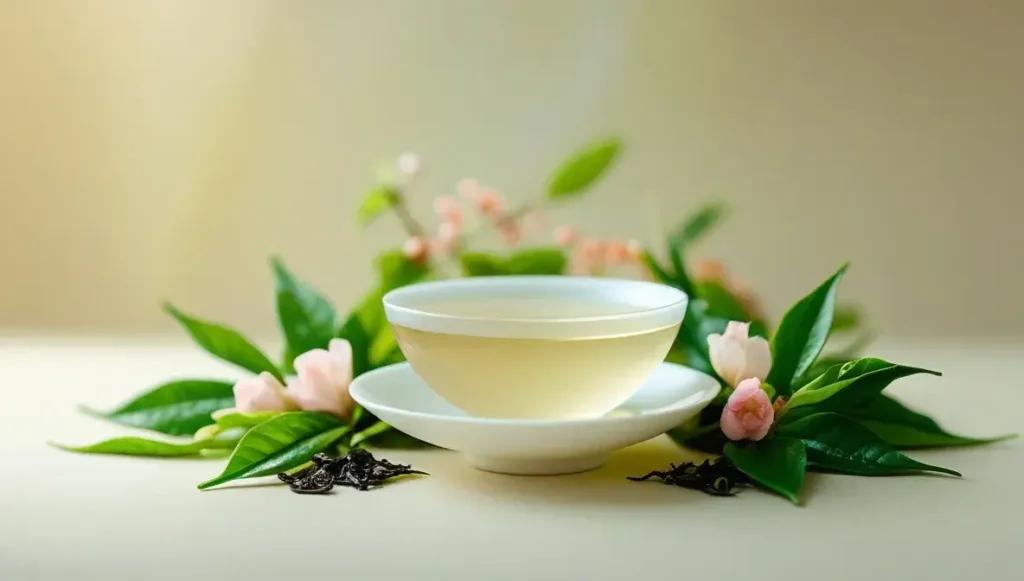
When you’re looking for ways to manage anxiety, sometimes the simplest, most natural remedies for anxiety relief can be the most effective. It’s not about finding a magic bullet, but rather incorporating small, calming rituals into your day. And honestly, a warm cup of tea can really hit the spot.
Chamomile Tea’s Sedative Properties
Chamomile is probably one of the most well-known natural remedies for anxiety. It’s got this antioxidant called apigenin, and the research suggests it latches onto certain spots in your brain that can dial down anxiety and even help you drift off to sleep. It’s like a gentle nudge towards calm.
Green Tea and Its Relaxation Benefits
Green tea is pretty interesting because it has L-theanine. This amino acid is what helps you feel relaxed but still alert, which is a neat trick. It’s not like you chug a cup and suddenly feel sleepy; it’s more of a smooth, focused calm. Some studies even show it can lower stress levels. Just be mindful of the caffeine if you’re sensitive, though.
Herbal Teas for Nervous System Support
Beyond chamomile and green tea, there’s a whole world of herbal teas that can help with nervousness. Think about things like lavender or lemon balm. Lavender is often used for its scent, but drinking it as tea might also help ease those anxious feelings. Lemon balm is another one that some people find helps lift their mood. These are great options for anxiety management with herbal tea, especially if you’re trying to cut back on caffeine or want something specifically for your nervous system.
Here’s a quick look at some popular choices:
- Chamomile: Great for winding down, especially before bed.
- Green Tea: Offers a calm alertness, but watch the caffeine.
- Lavender: Known for its soothing aroma and potential calming effects.
- Lemon Balm: May help improve mood and reduce feelings of stress.
It’s important to remember that while these teas can be a wonderful addition to your routine, they work best as part of a bigger picture. They aren’t a replacement for professional help, but they can certainly make those tough days a little more manageable.
👉 Discover the Premium White Tea Loved by Top Connoisseurs 👈
Brewing and Consuming Tea for Optimal Relief
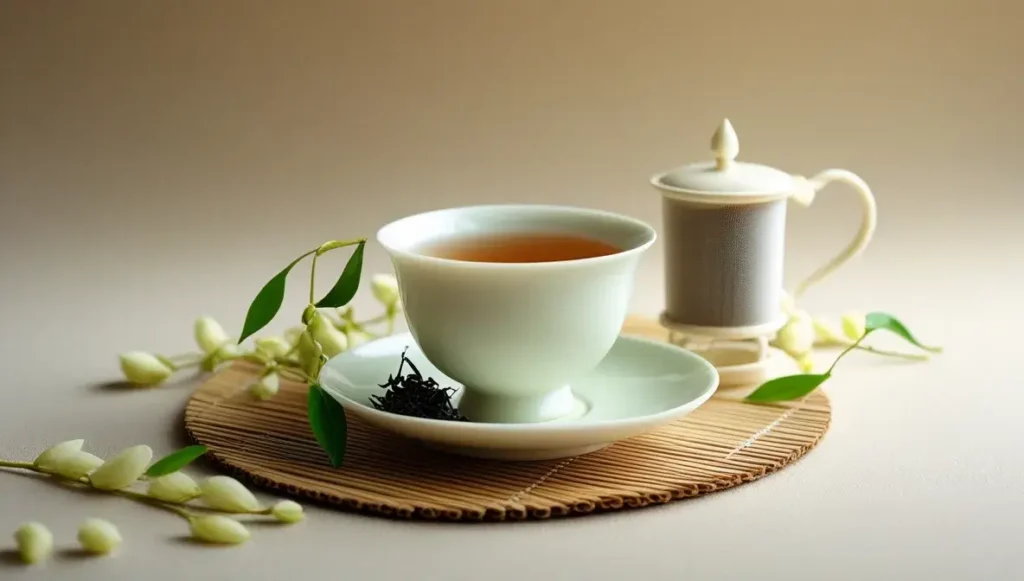
So, you’ve got your favorite calming tea, but how do you actually make it work best for you? It’s not just about tossing a tea bag in hot water and calling it a day. The way you brew and when you drink it can make a real difference in how much relief you get.
Ideal Water Temperatures and Steeping Times
Different teas need different treatment. If you’re using delicate white or green teas, you don’t want to scorch them with boiling water. That can make them taste bitter and might mess with their good stuff. For most green and white teas, aim for water that’s hot but not quite boiling, usually around 170-180°F (77-82°C). Herbal teas, on the other hand, are usually tougher and can handle hotter water, closer to boiling, around 200-212°F (93-100°C).
Steeping time is also key. Too short, and you won’t get all the good compounds out. Too long, and some teas can get bitter. Generally, green and white teas do well with 1-3 minutes. Herbal teas often need a bit longer, maybe 5-10 minutes, to really release their calming properties. It’s worth experimenting a bit to see what tastes best and feels most effective for you.
When to Drink Tea for Anxiety
Timing is everything, right? For anxiety management, think about when you need that calm boost. A cup in the morning can set a relaxed tone for the day. If you know a stressful meeting or event is coming up, having a cup about 30 minutes beforehand might help take the edge off. And of course, a warm, caffeine-free herbal tea in the evening is a great way to signal to your body that it’s time to wind down and prepare for sleep. Consistency is more important than a single cup.
The Importance of Tea Quality
Just like with food, the quality of your tea matters. Cheaper, dust-filled tea bags might not have the same concentration of beneficial compounds as higher-quality loose-leaf teas. Loose-leaf teas often contain whole or larger pieces of leaves and herbs, which can steep better and offer a richer flavor and more potent effects. When you’re looking for tea to help with anxiety, try to find reputable brands that specify the origin and quality of their ingredients. It might cost a little more, but you’ll likely get a better experience and more noticeable benefits.
Think of it like this: you wouldn’t use old, stale spices to cook a gourmet meal, would you? The same idea applies to your tea. Good ingredients make for a better outcome, and when you’re trying to manage something as personal as anxiety, you want the best ingredients you can get.
Considering Caffeine and Herbal Interactions
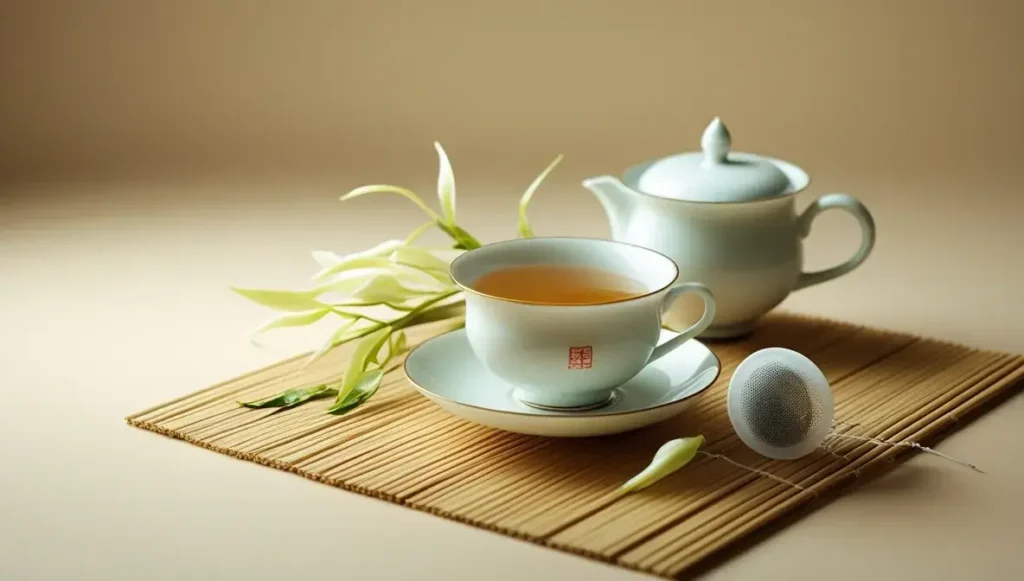
When you’re looking at teas for anxiety, it’s easy to focus just on the calming stuff, but you’ve also got to think about what else is in there. Caffeine is the big one, of course. Most people know it can make you feel more alert, but for some, that alertness can tip over into jitters or even worsen anxiety symptoms. It really depends on how sensitive you are to it.
Navigating Caffeine Content in Different Teas
Not all teas are created equal when it comes to caffeine. Generally, black teas and green teas have more caffeine than white teas, though it can vary a lot based on how they’re grown and processed. Herbal teas, on the other hand, are usually caffeine-free, which is why they’re often recommended for evening relaxation.
Here’s a rough idea:
- Black Tea: 40-70 mg per 8 oz cup
- Green Tea: 20-45 mg per 8 oz cup
- White Tea: 15-30 mg per 8 oz cup
- Herbal Teas (e.g., Chamomile, Peppermint): 0 mg per 8 oz cup
Potential Side Effects of Herbal Teas
Even though herbal teas are often seen as completely harmless, it’s still good to be aware of potential side effects. Some herbs can interact with medications, or might not be suitable for certain health conditions. For example, some people might have allergies to certain herbs, or find that a particular tea doesn’t agree with their stomach. It’s always a good idea to start with a small amount to see how your body reacts.
Consulting Healthcare Providers for Herbal Remedies
If you’re dealing with significant anxiety or are on medication, it’s really smart to chat with your doctor or a qualified healthcare professional before making herbal teas a regular part of your routine. They can help you understand if any specific herbs might interfere with your current treatment or if there are any personal health reasons you should avoid certain teas. Getting professional advice ensures you’re using these natural options safely and effectively.
👉 Taste the Best White Tea Experience You’ll Ever Enjoy 👈
Tea as a Complementary Anxiety Strategy
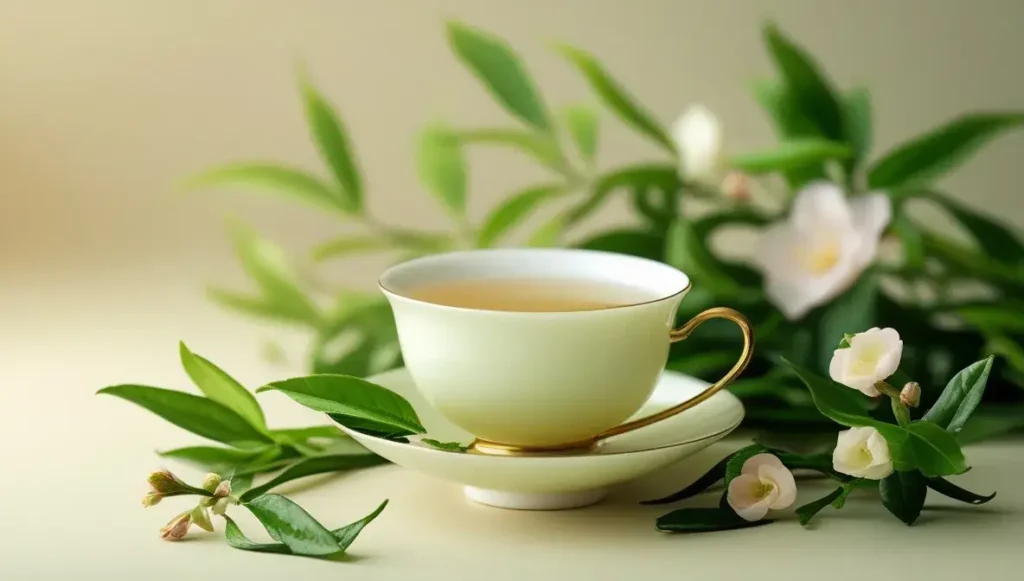
When you’re looking for ways to manage anxiety, it’s easy to feel overwhelmed by all the options out there. Sometimes, the simplest approaches can be the most effective, and that’s where tea comes in. Think of tea not as a magic bullet, but as a gentle companion in your overall plan for feeling better. It’s about weaving these calming rituals into your daily life to support your mental well-being.
Integrating Tea into a Holistic Anxiety Plan
Adding tea to your routine is just one piece of a bigger puzzle. A truly effective approach to anxiety management involves looking at your whole lifestyle. This means paying attention to what you eat, how much you move, and how well you sleep.
- Nourish your body: Focus on whole foods like fruits, vegetables, and lean proteins. Cutting back on processed stuff and sugar can really make a difference in your mood.
- Get moving: Even a little bit of exercise, like a walk or some yoga, can help lower stress levels.
- Prioritize sleep: Aim for 7 to 9 hours of good sleep each night. Creating a relaxing bedtime routine can signal to your body that it’s time to wind down.
Lifestyle Factors Supporting Mental Well-being
Beyond diet and exercise, there are other simple habits that can really help keep anxiety in check.
- Mindfulness: Taking just a few minutes each day to be present can reduce anxiety. It helps ground you in the moment.
- Deep Breathing: Simple breathing exercises, like taking slow, deep breaths from your belly, can calm your nervous system pretty quickly.
- Aromatherapy: Scents like lavender or chamomile can be quite soothing for the mind.
Recognizing Tea’s Role Alongside Professional Treatment
It’s really important to remember that while tea can be a great tool for natural anxiety relief, it’s not a replacement for professional help. If you’re dealing with significant anxiety, talking to a doctor or therapist is key. They can help you figure out the best treatment plan for you. Tea can be a wonderful addition to that plan, offering a comforting ritual and some potentially calming compounds, but it works best when it complements other forms of support, not when it stands alone. Think of it as a supportive friend, not the main event.
Scientific Backing for Tea and Anxiety
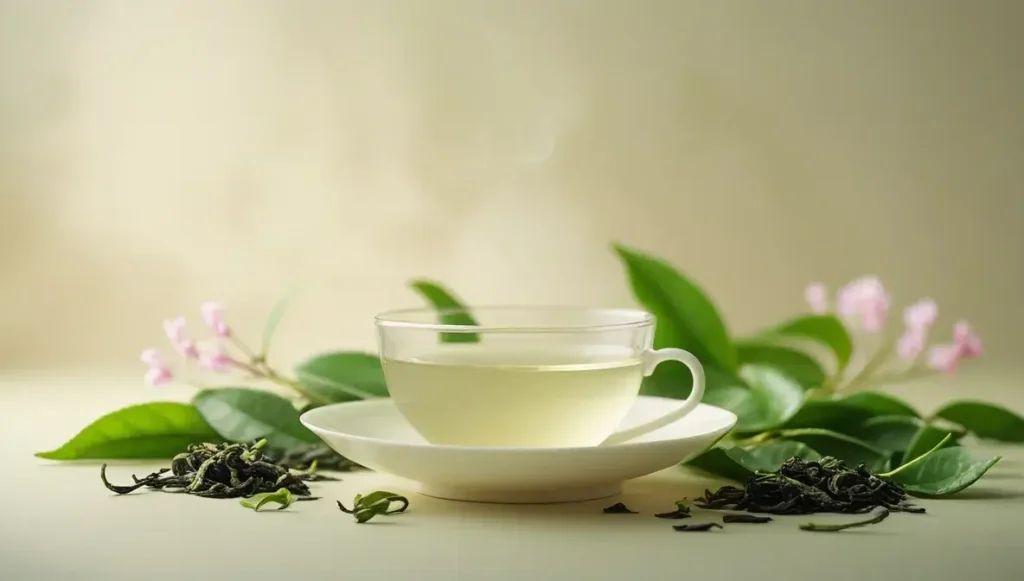
So, does science actually back up the idea that sipping on tea can help with anxiety? The short answer is yes, there’s some pretty interesting research out there. It’s not like a magic bullet, of course, but several studies point to specific compounds in tea that can have a calming effect.
Studies on L-Theanine and Stress Reduction
One of the big players here is an amino acid called L-theanine. You find a good amount of it in teas made from the Camellia sinensis plant, like green and black tea. What’s cool about L-theanine is that it seems to help your brain produce alpha waves. Think of these as brain waves associated with a relaxed, but still awake, state. It’s like being calm without feeling sleepy. Some research, like a study from 2019, showed that L-theanine can actually lower stress markers in people who are dealing with stressful situations. It’s pretty neat how a simple amino acid can have such a noticeable effect.
Research on Green Tea’s Anxiety-Reducing Potential
Green tea, being a good source of L-theanine, has been a frequent subject in studies looking at anxiety. Several trials have suggested that drinking green tea can lead to a reduction in anxiety levels. For instance, a 2017 study published in Phytotherapy Research specifically noted this effect. It seems the combination of L-theanine and a moderate amount of caffeine in green tea might be the key, offering a sort of calm alertness that many people find helpful when feeling anxious.
Evidence for Herbal Teas in Anxiety Management
It’s not just Camellia sinensis teas that get the scientific nod. Herbal teas, like chamomile, have also been looked at closely. Chamomile contains a compound called apigenin, which might act on certain brain receptors that can reduce anxiety and even help with sleep. A study in the Journal of Clinical Psychopharmacology in 2016 indicated that chamomile could potentially help ease symptoms of Generalized Anxiety Disorder (GAD). Other herbs, like valerian root, are often studied for their sleep-promoting qualities, which indirectly helps manage anxiety by improving rest.
Here’s a quick look at what some studies have suggested:
- Green Tea: Linked to reduced anxiety levels.
- Chamomile Tea: May help decrease anxiety and initiate sleep.
- Black Tea: Some research points to lower cortisol levels after stress.
While these findings are promising, it’s important to remember that tea is generally considered a complementary approach. It’s not a replacement for professional medical advice or treatment plans for anxiety disorders. Always chat with your doctor before making significant changes to your routine, especially if you’re on medication.
👉 Sip the Finest White Tea for a Luxurious Relaxation 👈
So, Is White Tea Good For Anxiety?
While this article focused on white tea’s potential role in managing anxiety, it’s clear that tea, in general, offers some promising benefits. Compounds like L-theanine, found in many teas, are known for their calming effects. However, white tea itself has less research specifically tied to anxiety compared to, say, green or chamomile tea.
It does contain some L-theanine and less caffeine than black or green tea, which could be a good thing if you’re sensitive to stimulants. Ultimately, incorporating tea into your routine can be a nice, mindful moment in your day. Just remember it’s best used as a complement to other proven anxiety management strategies, like therapy, exercise, and good sleep, and always chat with your doctor if you have concerns.
Frequently Asked Questions
Which herbal teas are known to help with anxiety?
Herbal teas like valerian root, lemon balm, passionflower, and lavender are known for their calming effects. These herbs can help relax your nervous system and ease feelings of anxiety. They’ve been used for a long time to help people feel more at ease.
Can chamomile tea help with panic attacks, and how should I drink it?
Chamomile tea is often recommended for anxiety because it has a natural calming ingredient called apigenin. This ingredient can help you feel more relaxed and might even make it easier to fall asleep. Drinking a cup when you start feeling anxious or before bed can be helpful.
What are the benefits of green tea for anxiety?
Green tea has an amino acid called L-theanine, which is great for promoting relaxation without making you feel sleepy. It can help you feel calm and focused. However, green tea also has caffeine, so if you’re sensitive to it, you might want to drink it earlier in the day or choose a decaf version.
Are there specific teas that help improve sleep for people with anxiety?
Yes, some teas can help you sleep better if you have anxiety. Teas like chamomile, valerian root, and lavender are known for their sleep-promoting qualities. They can help calm your mind, making it easier to drift off to sleep and stay asleep.
How should I prepare tea to get the most relief from anxiety?
When making tea for anxiety, the temperature of the water and how long you let it steep are important. Use hot, but not boiling, water to avoid damaging the herbs. Letting the tea steep for about 5 to 10 minutes helps release more of the calming ingredients.
Can tea completely cure anxiety?
While teas can be a helpful part of managing anxiety, they aren’t a cure on their own. It’s best to think of tea as a way to relax and cope with symptoms, alongside other treatments like therapy, exercise, and getting enough sleep. Always talk to a doctor or therapist about the best plan for your anxiety.
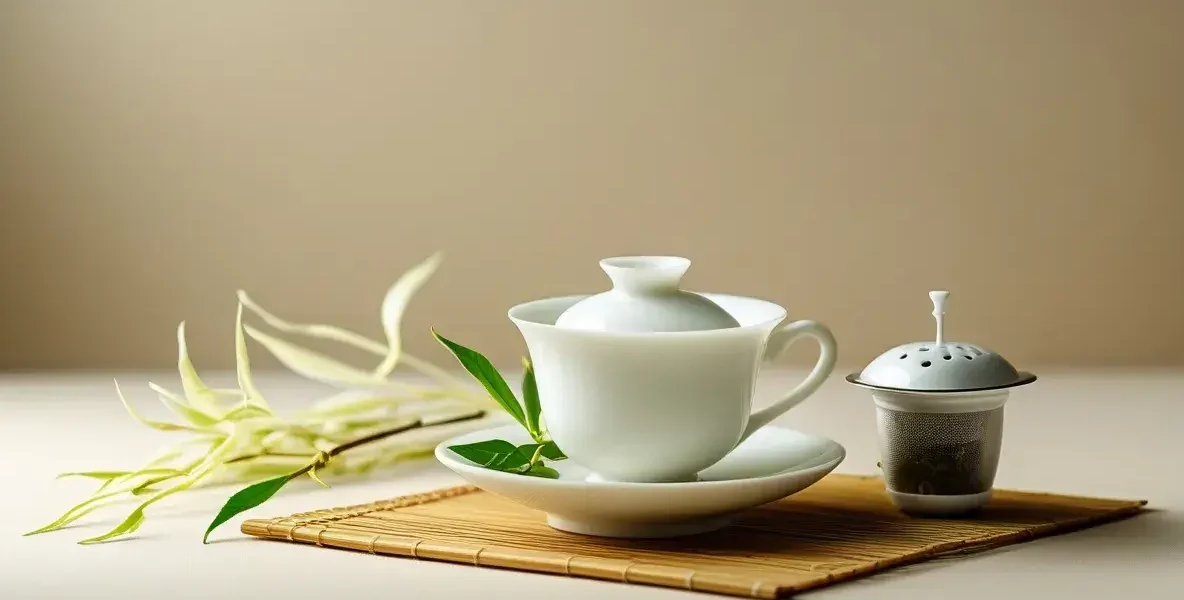
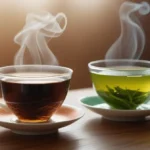


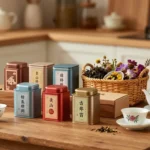
![Jasmine Tea vs Green Tea Benefits: Which Gives Better Health Results? [2025] jasmine tea vs green tea benefits](https://www.goteaworld.com/wp-content/uploads/2025/09/jasmine-tea-vs-green-tea-benefits-150x150.webp)


